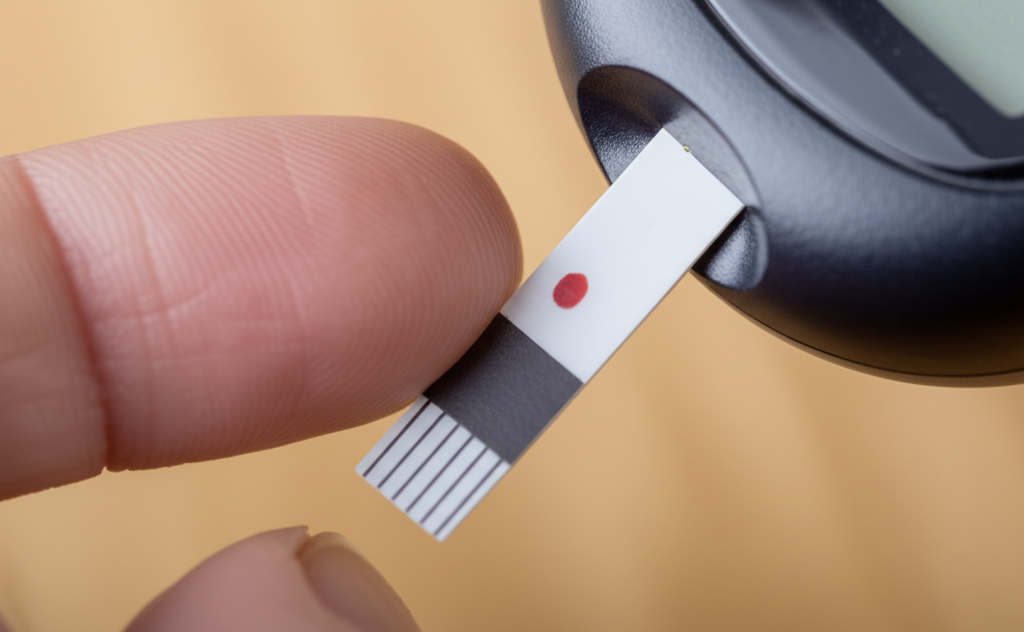Blood glucose levels are a crucial indicator of metabolic health. Many individuals, including those with diabetes, seek to understand what constitutes a normal range and how to effectively manage it. Contrary to the misconception that diabetes management solely relies on medication, consistent glucose monitoring plays a pivotal role in maintaining overall well-being.
Regular glucose testing isn’t exclusive to diabetics; it’s a valuable practice for anyone seeking to proactively manage their health. By monitoring glucose levels, individuals can gain insights into how their bodies respond to various factors, including diet and stress.

How to Monitor Blood Glucose
Monitoring blood glucose is a straightforward process that involves using a glucometer. When purchasing a glucometer, it’s essential to consider the cost of test strips, as they often represent the ongoing expense. The testing procedure itself is relatively painless, especially when performed on the side of the fingertip, where nerve density is lower.
A blood glucose reading provides valuable information about the amount of glucose, or blood sugar, present in the body. Understanding the significance of these numbers is essential for managing one’s health effectively.
Ideal Glucose Levels
Glucose is the body’s primary source of energy. To maintain optimal health, it’s important to maintain healthy glucose levels.
Fasting glucose levels, measured first thing in the morning before eating, offer a snapshot of metabolic health. A normal fasting glucose range is generally considered to be between 80 to 100 milligrams per deciliter (mg/dL). However, emerging research suggests that aiming for a fasting glucose level of 85 mg/dL or below may further reduce the risk of heart attacks, strokes, cancer, and kidney problems.
A fasting glucose level between 101 and 129 mg/dL may indicate pre-diabetes, while a level of 130 mg/dL or higher may suggest diabetes.

The Impact of Diet and Lifestyle
Dietary choices and lifestyle factors can significantly impact blood glucose levels. For example, consuming refined carbohydrates such as bread, flour, rice, and potatoes can lead to elevated glucose levels. Additionally, sensitivities to foods like wheat, rice, and corn (referred to as “TAM”) can also contribute to glucose imbalances.
By tracking fasting glucose levels and noting dietary and lifestyle choices, individuals can identify stressors that negatively affect their glucose levels.
Taking Control of Your Health
Monitoring blood glucose levels empowers individuals to take control of their health. By understanding how diet, stress, and sleep affect their glucose levels, people can make informed choices to support optimal metabolic function. This proactive approach can help prevent chronic diseases and promote overall well-being.
Elevated glucose levels (above 130 mg/dL) can lead to cellular damage and increase the risk of various health complications, including vision loss, kidney damage, heart disease, and cancer. Therefore, maintaining healthy glucose levels is crucial for preserving long-term health and vitality.



